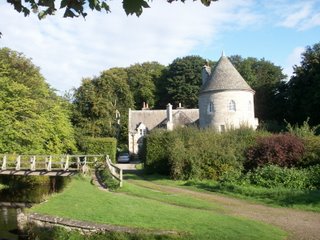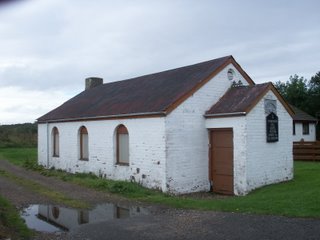

In
Dallas Willard's book "The Divine Conspiracy" he notices that on examination of local gatherings of Christian believers .... it seems a general law of social and historical development, that institutions tend to distort and destroy the central function that brought it into existence.
Clyde Reid, in his law of religious evasion, states
"we structure our churches and maintain them, so as to shield us from God, and to protect us from genuine religious experience". Adult members of Churches today, rarely raise serious religious questions for fear of revealing their doubts, or being thought of as strange. There is a conspiracy of silence on religious matters in the Church. This conspiracy covers up the fact that Churches do not change lives or influence conduct to any appreciable degree. It was the case, in the 18th and 19th century and still is the case in the 20th and 21st.
The 17th century James Morison, on his way to preach at Cabrach, read Charles Finney's "Revivals of Religion". Moved by what he read, he put to one side his sermon notes prepared and preached from the heart. As we look to the Church in Scotland, it is dogged with separations, why so many? Is it really due to a particular doctrine or theology or is it something else? We, after some separations from the Church, because of State Intervention or of Church government or of the use of Communion or Church practise, may be of no real consequence.
I am convinced that the difficulties of the Church in Scotland, no matter what denomination is one of trust. If the Church is to revive the nation, it needs to be prayerful – yes, it needs to be:
encompassing
it needs to be alive
it needs to be accommodating
This means that it cannot afford to have Victorian methods, or indeed Victorian double values.
Those who rediscovered truth were people who were back searching in the Word of God and praying. They were not reviewing Confessions of Faith, or Constitutions, or Covenants. It is a recurring observation that when there is a moving of God's Spirit in His people, they are moved back to reading the Word of God and not a secondary document, Creed or Catechism.








